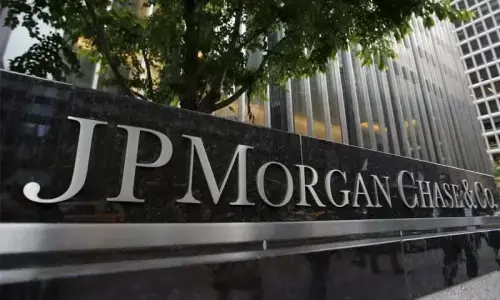DESPITE widespread cynicism in national politics and governance, the country has been quietly transforming, paving the way for a higher and more equitable economic development.
People in the remote areas who have never even been to a bank are receiving and transmitting money on their cell phones. About 10,000 SIM accounts facilitate the mobile cash transfer product.
The gradual picking up of mobile commerce (cell phone density crossed 100 million mark in 2010) can be seen as an indicator of a slow but persistent change in the mindset and lifestyle of the people, striving hard to break out of the cycle of deprivation. The facility is particularly useful for families dependent on income of a member working away from home.
The widespread internal migration because of uneven development in cities and countryside is leading to labour market readjustments.
In ten bigger cities, a significant number of workers remit their income to families back home on a regular basis. In the absence of universal banking network, people hailing from restive upcountry or remote areas sometimes have to travel back and forth to deliver funds to their dependents.
Businesses also incur additional cost to make financial settlements at distant sale points.
The introduction of mobile banking has brought a dependable option for immigrant workers and businesses, facilitating other payments as well.
Mobile commerce is a cell phone based cash transfer system. It is a kind of branchless banking where the account is linked to the SIM of a cell phone. The product is said to be time-efficient and cost-effective.
The first mobile commerce service ‘Easypaisa’ was introduced by a leading cell phone company, Telenor Pakistan (a subsidiary of Telenor Norway) in collaboration with Tameer Bank in October 2009. Other major cell phone operators-- Mobilink, China Mobile’s Zong, Warid and Ufone-- reached over phone confirmed that they would also be launching similar products in the near future.
Roar Bjaerum, Vice President Financial Services, Telenor Pakistan, termed the initiative a success. “Easypaisa’ has very quickly gained popularity among all segments of the society. Over Rs8 billion has been moved through more than five million transactions in its first year of operation.”
“Considering that only 12 per cent of the country’s population has access to banking services, ‘Easypaisa’ is helping to bring financial services to the un-banked. Our product development team is exploring new services and solutions to meet the growing needs of ‘Easypaisa’ users. Areas of interest to us include corporate payment solutions and insurance among others,” he said.
The company says, currently one million transactions are carried out in a month with total approximate value of Rs1.7 billion. There are 10,000 outlets across the country in addition to 3,000 ATM machines used for withdrawals. The product can be used for money transfers for domestic remittances, international home transfers, bill payments, donations, etc.
“Mobile commerce is a huge challenge and a great opportunity in Pakistan where a large proportion of the population does not have bank accounts. In order to address this need, ZONG intends to launch mobile commerce services within a short span of time”, Salman Wassay, Head of Marketing Zong, said in his mailed remark.
“We have to make a clear demarcation in mobile commerce between mobile banking and non-banking services such as utility payments, point of sale payments, etc. It will take time to evolve because end user has to be comfortable with technology; so education is required. We have Bank Alfalah as a sister concern and we are working on platforms that serve these products,” Munir Farooqui, Warid CEO, mailed his comment on the subject.
A senior cell phone company official said Pakistan is a land of opportunity as compared to the saturated western markets. It is no accident that despite multifarious challenges several hundred foreign companies have their presence here and many are expanding their operations”, he added.
How this innovative product compares with similar products in other developing nations? The international media noted the development, compared it with M-paisa in Kenya and a Grameen Bank project in Bangladesh. They found Pakistan’s version better. According to CNN, “The EasyPaisa model is much more sexier than Mpaisa model”.
“Cost-effective, timely flow of money within an economy is imperative for achieving competitiveness and higher productivity levels. The tools that facilitate the process not only serve the needs of people, they directly contribute to growth and development”, observed an economist.

































